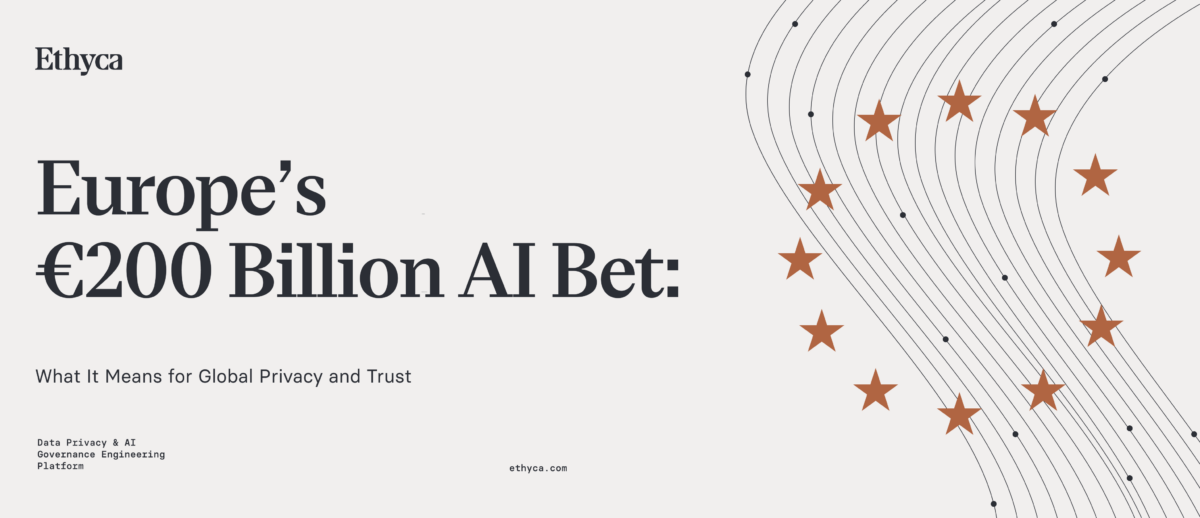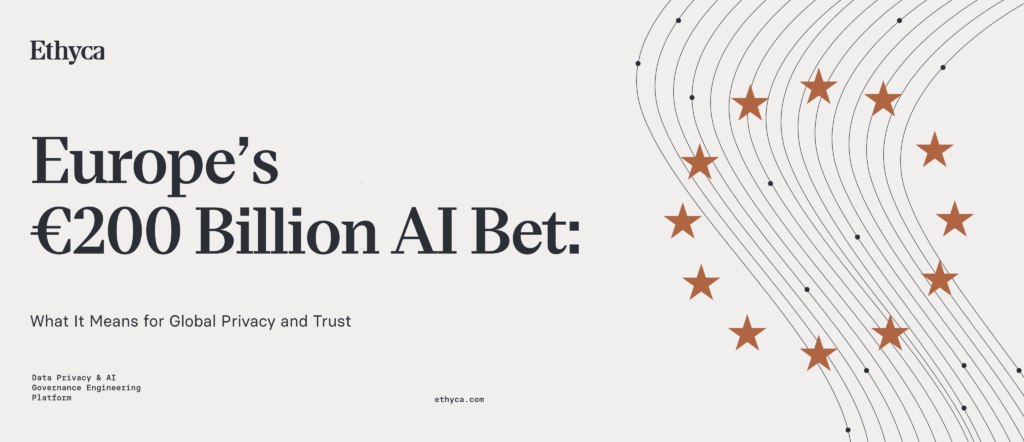Europe’s €200 Billion AI Bet: What It Means for Global Privacy and Trust


The European Union is taking a decisive step in the global AI race, announcing the AI Continent Action Plan, a sweeping €200 billion strategy to cement Europe’s leadership in artificial intelligence. Anchored by public-private investments and regulatory alignment, the plan aims to build up to five AI “gigafactories” — massive computing hubs designed to train and deploy next-generation models at scale.
These gigafactories will each house over 100,000 AI processors, enabling frontier model development for use cases in healthcare, manufacturing, climate science, and more. Inspired by CERN’s collaborative model, the AI Factories will bring together researchers, startups, and public agencies to pursue ambitious, cross-disciplinary AI “moonshots.”
At the heart of this push is Europe’s unique value proposition: a human-centric, trust-based model for AI development and deployment. The Commission emphasized that Europe must build on its own strengths — an integrated market, world-class research, and a growing ecosystem of over 6,800 AI startups — rather than emulate the approaches of the U.S. or China.
But the announcement also revealed internal tensions. While the AI Act—the EU’s landmark risk-based regulation—has just begun its phased rollout, the Commission signaled its intent to re-examine parts of the Act to reduce friction for startups and scaleups. This has raised concerns among consumer groups and privacy advocates who fear a dilution of core safeguards before enforcement has even begun.
From a trust and governance standpoint, this presents both opportunity and risk. On one hand, Europe is doubling down on the infrastructure required to train secure, sovereign AI models on European soil. On the other, regulatory uncertainty could jeopardize the very confidence the EU’s privacy-first stance is meant to inspire.
At Ethyca, we see this moment as a pivotal inflection point for the EU. Building powerful models is no longer the hard part—building them responsibly is. There is a tightrope walk between AI regulation and removing commercial friction for companies investing in and using AI, and the next 6-12 months will be the formative moment for Europe in terms of which direction the continent moves towards.
Infrastructure investment without parallel investment in technologizing privacy and deepening data transparency risks repeating the mistakes of the past decade. The EU’s call for trustworthy AI must be backed by operational controls that ensure data is gathered, processed, and modeled in accordance with user expectations and legal mandates–not forsaking that for business growth at all costs.
The gigafactories may power the next generation of AI models, but it’s privacy infrastructure that will determine whether those models are accountable. As the AI Continent takes shape, we believe privacy engineering must be treated as core infrastructure for the AI age. If Europe succeeds in aligning AI deployment at scale with data protection, it has a chance to determine the future of AI governance. Ethyca is committed to supporting that vision, one consent record and one processing log at a time.